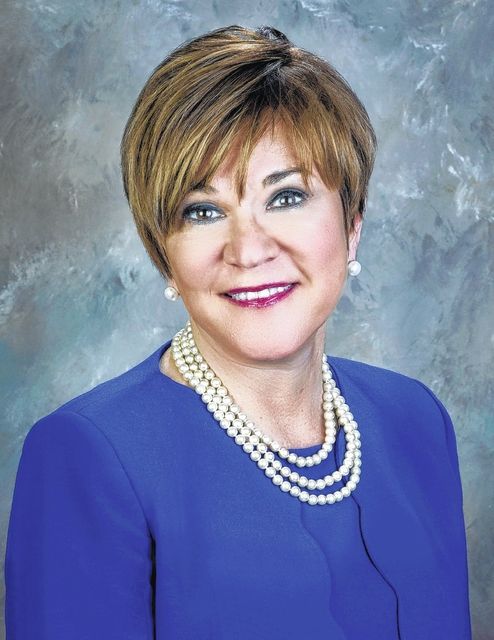Click here to subscribe today or Login.
WILKES-BARRE — In the next week or so, tens of thousands students will head back to school in the Wilkes-Barre area.
AAA Mid-Atlantic and the Mid-Atlantic Foundation for Safety and Education are urging parents, students and all motorists sharing the roads with school buses to put safety first with its annual “School’s Open — Drive Carefully” campaign.
• The National Highway Traffic Safety Administration reports that from 2005 to 2014, there were 1,332 people of all ages killed in school-transportation-related crashes — an average of 133 fatalities per year.
• Occupants of school transportation vehicles accounted for 8 percent of the fatalities while non-occupants (pedestrians, bicyclists, etc.) accounted for 21 percent of the fatalities.
• Most of the people (71 percent) who lost their lives in these crashes were occupants of other vehicles involved.
“It is critical that everyone who shares the road prepares themselves for back to school, whether they are a student or not,” said Jana Tidwell, manager of Public and Government Affairs for AAA Mid-Atlantic, in an emailed news release.
In Pennsylvania
The Pennsylvania Department of Transportation reports that in 2015, there were 312 school bus crashes that resulted in six fatalities. There were 296 people injured in school bus crashes last year. Of those injured, 128 were occupants of the school bus.
“Drivers have had the roads to themselves since mid-June,” Tidwell said. “As schools continue to open across the Wilkes-Barre area, drivers must remember that their commute time may increase and that leaving home a little earlier can help them get where they need to be on time and with less stress.”
Tips for motorists
• Keep track of time — Be aware of the time of day you’re on the road and how that coincides with the school day. More school-age pedestrians were killed from 7 to 8 a.m. and from 3 to 4 p.m. than any other hours of the day.
• Slow down — Whether in a school zone or residential neighborhood, motorists should keep their speed low and be prepared to stop quickly for increased vehicle or pedestrian traffic.
• Scan between parked cars — Children can quickly dart out between parked cars.
• Look for clues of children nearby — Keep an eye out for clues that children are likely nearby such as AAA School Safety patrol members, crossing guards, bicycles and playgrounds.
• Obey traffic signs — Unfortunately, many motorists violate stop signs in school zones and residential neighborhoods –many failing to come to a complete stop, rolling through a stop sign or not slowing down at all
• Always stop for school buses — Flashing yellow lights on a school bus indicate it is preparing to stop to load or unload children, and motorists should slow down and prepare to stop. Red flashing lights and extended stop arms indicate the bus has stopped and children are getting on and off. Motorists are required to stop their vehicles and wait until the red lights stop flashing, the extended stop sign is withdrawn and the bus begins moving before they can start driving again.
Tips for parents and students
• Teach children the importance of using crosswalks and how to look left-right-left before crossing.
• Always walk on the sidewalk. If there is not a sidewalk, walk facing traffic.
• Try to drop children off where they won’t have to cross the street to reach their destinations. Avoid the dangers of jaywalking and encourage kids to always cross in clear view of traffic, never from between parked cars.
• Just as you wouldn’t text and drive – don’t text and walk. Stay alert to your surroundings.
State’s new Prescription Drug Monitoring Program up and running
Gov. Tom Wolf announced last week that Pennsylvania’s newly redesigned Prescription Drug Monitoring Program (PDMP) is fully operational and will serve as an important tool to help curb the prescription opioid and heroin public health crisis in the commonwealth.
“More than 3,500 Pennsylvanians died last year from drug overdose – that’s an astonishing 10 deaths each day,” Wolf said. “The PDMP allows prescribers and dispensers to query and report information regarding the number of opioids prescribed, and to whom. This program enables health care professionals to address potentially fatal drug abuse and provide improved and streamlined care to their patients.”
Since the 1970s, Pennsylvania has had a prescription drug monitoring program. However, it’s been run by the Office of Attorney General and only available to law enforcement. The new program is run by the Department of Health and is now open to licensed health professionals.
The PDMP online database allows prescribers and dispensers of controlled substances to monitor who is obtaining opioids, who prescriptions are being obtained from, and how often they are prescribed. This critical online tool will support clinicians in identifying patients who may be struggling from the disease of addiction and help connect them with treatment services.
The new system will allow doctors to view patients’ medication histories and be better informed before issuing new prescriptions for controlled substances. Health care professionals will now be able to check if their patient recently had a prescription filled from other providers. The system will help physicians recognize potentially inappropriate medication use.
By using the new PDMP system, health care professionals will play a key role in reducing opioid abuse and overdoses. Physicians, dentists and providers licensed to prescribe scheduled drugs are required by the law to register in the system.
To learn more about the PA PDMP, register for the PDMP AWARxE, or view tutorial resources available about the new program, please visit www.doh.pa.gov/PDMP.
Caregivers reminded about risks of leaving
children in vehicles during warm weather
The Pennsylvania State Police and Department of Health last week issued a reminder to parents and caregivers of the dangers of leaving children unattended in vehicles.
An emailed news release stated “leaving a young child alone in a vehicle during warm weather is not only dangerous, but it also could be illegal.”
Pennsylvania law:
• Makes it illegal for a person to leave a child under the age of six unattended in a motor vehicle that is out of that person’s sight and endangers the health, safety or welfare of a child. It is a separate offense for each child left in the vehicle.
• Prohibits the endangerment of children by guardians who knowingly endanger the welfare of a child by violating their duty of care, protection or support. Guardians could face fines or jail time for child endangerment.
Secretary of Health Karen Murphy said children should never be left unattended in a car, and the recent high temperatures have greatly increased many of the pre-existing potential dangers.
“The Department of Health asks parents and guardians to always supervise a child or infant who is in a vehicle. Just one careless mistake with a child in a high temperature situation could prove fatal,” Murphy said.
Here are some facts relating to the dangers of leaving children unattended in vehicles on hot days:
• Leaving a child alone in a car can lead to serious injury or death from heatstroke.
• Heatstroke is the leading cause of non-crash, vehicle-related deaths for children.
• Make sure to keep your vehicle locked when not in use so children can’t get in on their own.
• Create reminders by putting something in the back of your car next to your child such as a briefcase, a purse or a cellphone that is needed at your final destination.
• In extreme heat, cracking a window open and parking in the shade are not sufficient safeguards.







